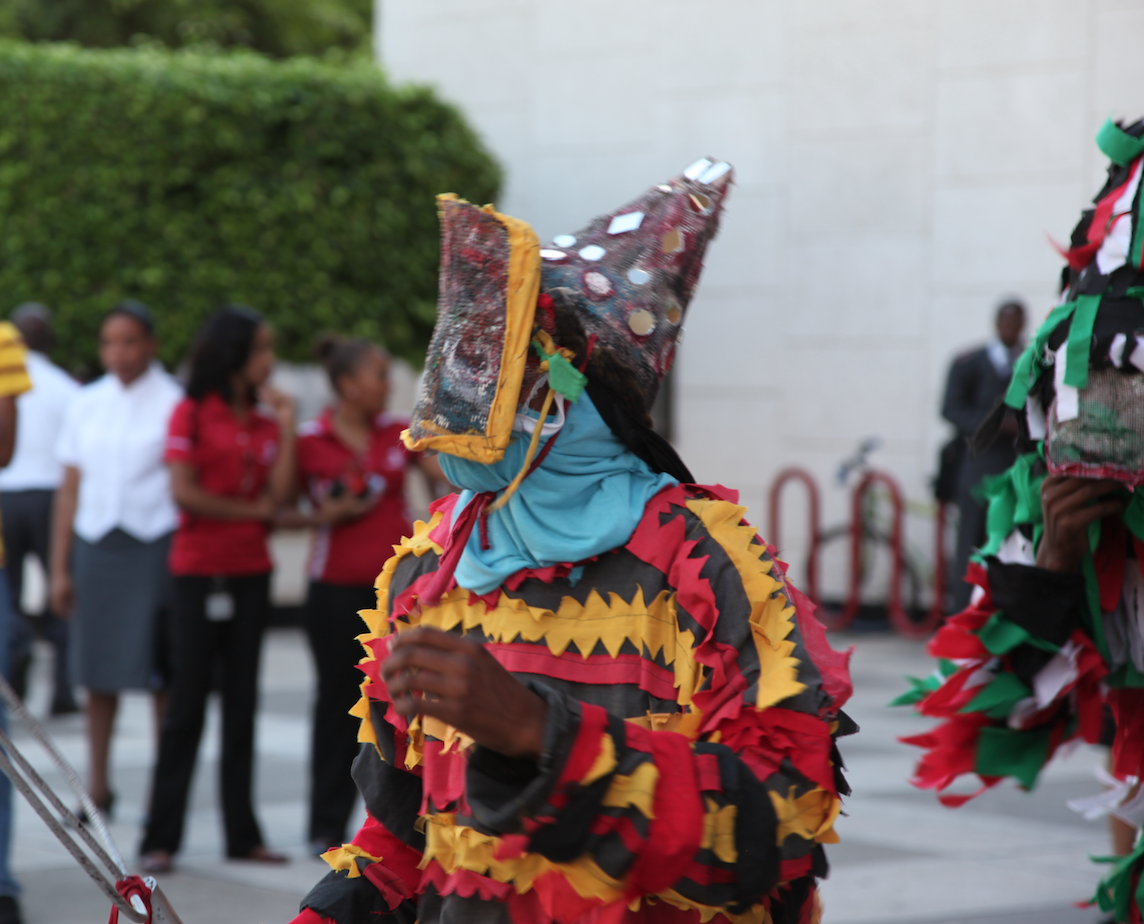
Men in strange masks and brightly coloured costumes walking on stilts terrified many of us as children. But the history of Jonkonnu still fascinates us as adults, especially as we get closer to Christmas and this holiday tradition.
Jonkonnu, or John Canoe British influenced writers spell it, is a folk festival across several Caribbean counties around Christmas time. It involves music, dancing and elaborate costumes that performers parade in the streets, showcasing their talents, sometimes in exchange for money and food.
Jonkonnu dates back to when slaves celebrated one of the few days they were relieved of their duties at Christmas. The origins of the name are largely unknown, but there are some theories. Some believe it honours John Conny, an active, successful black merchant near Axim along the Guinea Coast circa 1720. Other reports say the man’s name was John Canoe, who was from Ghana and became a German soldier. Later, he returned to his Ahanta people who had sided with Nzima and Ashanti troops to fight the Germans and other Europeans.
The African and European influences and regional differences means that characters, costumes and performance styles vary. The music often has strong African roots, with traditional songs played on the bamboo fife, bass and rattling drums, shakas and graters. Characters include a king, a queen, courtiers, the cow head, the horse head, the devil, Pitchy-Patchy (a flamboyant performer with a costume made of layered strips of brightly coloured fabric), different categories of warriors and Indians, Belly Woman, Bride House Head, and Policeman. This Policeman character was born when these officers in trying to stop the outlawed parades were overtaken by the rhythm of the drums, forgot their duties and joined in the merriment. Popular dance steps include jigs and polkas, open cut out, one drop and marching tune. Faces are fully covered and characters speak in coarse whispers to hide their true identities. (You can see why this might all be scary to a child).

While modern Jonkonnu bands are not as large as those of the 19th Century, they are still performed at state functions and other cultural events. We have even seen them at Jamaica’s carnival. When Christmas rolls around this year we hope you get to experience this skilful, lively, entertaining performance parading through the streets. You may even be tempted to join the masqueraders.
